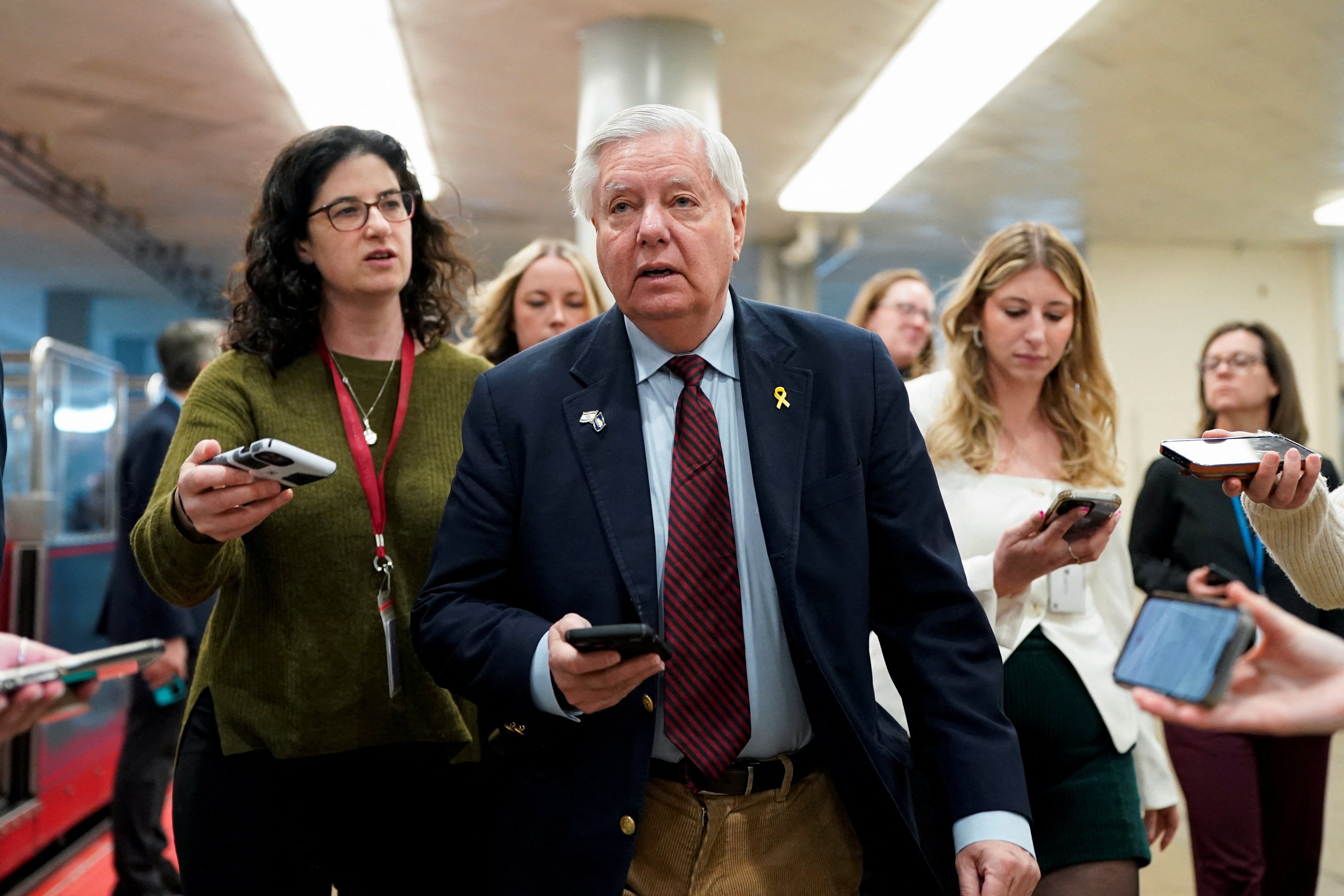U.S. Senator Lindsey Graham (R-SC) speaks to the media, on the day of a Senate Republicans' weekly policy lunch on Capitol Hill in Washington, D.C., U.S., February 19, 2025.
Last year, before Donald Trump won the 2024 election, nearly two dozen Republican senators ignored his publicly stated opposition and voted to send tens of billions of dollars in military and other aid to Ukraine.
President Trump now says that Ukraine started the war with Russia and that Ukraine’s Volodymyr Zelensky, not Russia’s Vladimir Putin, is a “dictator.” He has launched negotiations over Ukraine’s future with Putin’s government — and without a Ukrainian counterpart present.
How have Republican lawmakers responded? Some, like Iowa Sen. Jodi Ernst, South Carolina Sen. Lindsey Graham, North Carolina Sen. Thom Tillis, Alaska Sen. Lisa Murkowski, and Mississippi Sen. Roger Wicker, who serves as chairman of the Armed Services Committee — all of whom strongly supported the defense of Ukraine in the past — have criticized Putin but are careful not to say anything that sounds like criticism of Trump. Other GOP lawmakers have refused to comment.
Perhaps these and other Republicans are simply taking a patient approach to a complex negotiation process, allowing their president maximum room to maneuver. Or maybe Trump’s hold on the GOP is now strong enough to push his party to renounce one of its core foreign-policy convictions of the past 80 years.
